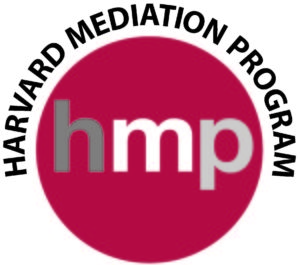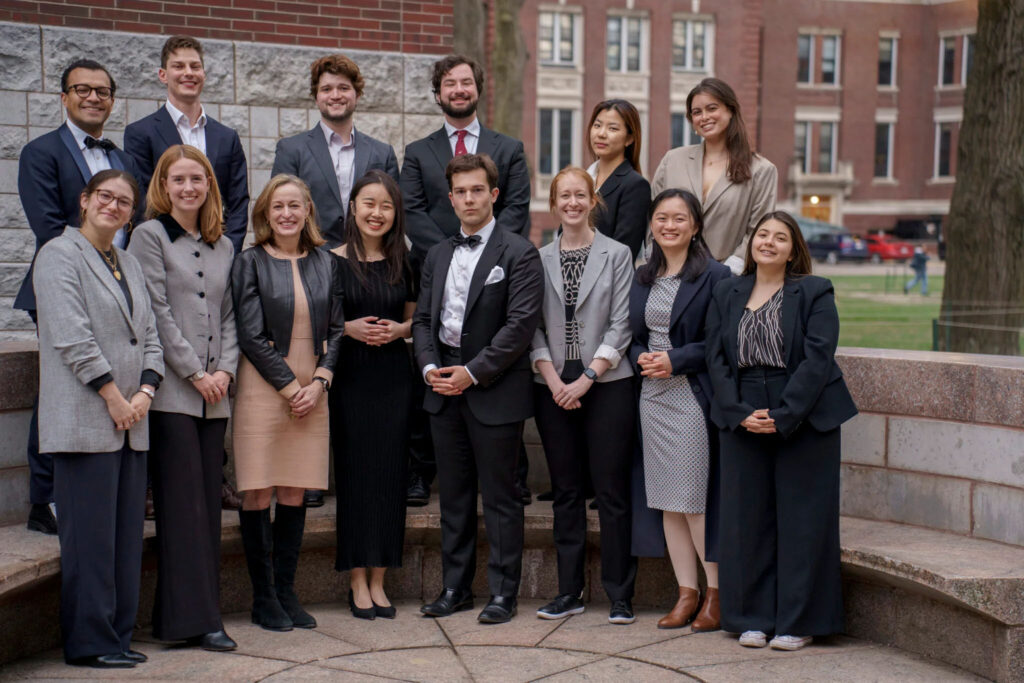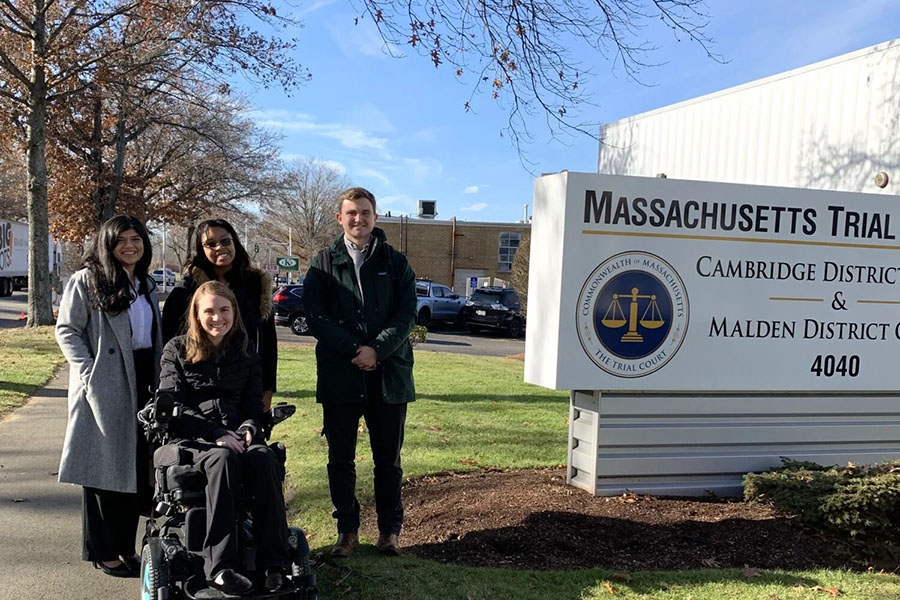By Peter Daniels ʼ21
As the world has adjusted to restrictions caused by the COVID-19 pandemic, the Harvard Mediation Program (HMP) has changed along with it. Boston-area courts have shifted to remote hearings for many case types, pushing mediation to be remote as well. HMP has been in the fortunate position to help lead the transition to remote mediation here in Massachusetts, and we have learned several lessons along the way.
Prior to COVID-19, most of HMP’s cases were fielded in person in district courts around the Boston area. Our trained mediators, a mix of Harvard Law School students and mediators drawn from the broader community, would arrive at the beginning of a court session. After giving a brief description of mediation to parties in the room, the presiding clerk magistrate would usually suggest that a handful of parties explore whether mediation might work for their cases. Once the mediators and parties had a chance to go over the process and the parties decided whether to continue, the mediation would commence and be complete by the end of the court session a couple hours later.
Remote court hearings and remote mediation have required mediation providers to completely rethink the above process. Parties are no longer in the same place, and many have varying levels of technology available. Some have laptops with full videoconferencing capabilities, while others are restricted to a cell phone or landline. In remote hearings, parties are not expecting to stay at the courthouse for a full morning or afternoon, so may be surprised when their case is directed to mediation, which can take longer than regular small claims or harassment prevention order hearing.
HMP and our partner courts have responded to this situation in two primary ways: case-specific referrals and virtual court hearings. Both of these techniques have advantages and disadvantages.
Through case-specific referrals, our partner courts identify cases that may be appropriate for mediation and share them with HMP. HMP then reaches out directly to the parties to describe HMP and our mediation process and find out if the parties are open to mediation. If they are, the mediation is scheduled to occur over Zoom or the phone, depending on the preferences of the parties. This case-specific referral approach offers several advantages. First, it can be much faster than waiting for a traditional court hearing. Many courts are currently scheduling hearings months into the future, especially for small claims cases. But parties can potentially resolve their case far in advance of their hearing date if their case is referred to HMP. This can save parties both time and money, especially since HMP offers our mediation services at no cost. Second, mediations can be scheduled at the convenience of the parties and mediators, instead of being restricted to when court sessions are usually held. This can make mediation appealing for those whose work, childcare, or other schedules bar them from appearing in court during the day. Third, HMP can help resolve cases for local courts well before the parties are set for a hearing. This can help free up courts’ schedules and allow them to process other cases more quickly.
Case-specific referrals come with challenges as well. First, in remote referrals, parties do not have the same experience as in-person parties of being directed to consider mediation by clerk magistrates. In practice, this means that many parties that are referred to HMP for remote meddiation do not take on the opportunity for mediation, electing instead to continue with the traditional process. This happens for several reasons—parties are more difficult to contact, may have inadequate technology to facilitate an equitable mediation process, or may not be interested in trying mediation prior to their scheduled court session. A large portion of the case-specific referrals end up returning to the courts for these reasons. Second, unlike in mediations connected to live court sessions, there generally is no clerk magistrate waiting to hear a case that has been convened for mediation on the basis of a case-specific referral. While this can take some of the time pressure off mediation, it also means that parties are sometimes less motivated to consider whether a mediated agreement might meet their interests because there is less of a sense of urgency. When in-person parties are aware that their case could immediately go in front of a clerk magistrate, some are more inclined to explore mediation more fully before returning to the hearing. By comparison, remote parties may be more inclined to delay resolving the case, since they know the formal hearing isn’t scheduled to occur for several more weeks or months.
The other way HMP primarily takes cases remotely is through virtual court sessions. Virtual court sessions more closely resemble in-person court hearings than do case-specific referrals. The advantages and disadvantages of virtual court sessions in many ways mirror those of case-specific referrals, though there are some notable differences. Mediations at virtual court sessions do not have the same flexibility in scheduling and often have more of a hard time-limit. But compared with the case-specific referral process, which can take multiple rounds of back-and-forth communication and logistical preparation to convene, virtual court sessions can provide mediation opportunities to parties who may not have had the time or capacity to convene a mediation session in advance of the hearing. One key challenge HMP has identified with virtual court sessions is managing video- or phone-conferencing logistics. In mediating a case-specific referral, HMP usually hosts our mediation through a professional Zoom profile, the settings of which we closely tailor to facilitate our mediation process (e.g., creating breakout rooms and disabling the chat feature). But with virtual court sessions, some courts prefer that we keep our mediators and parties within the court’s Zoom call or other video-conferencing architecture. Ensuring that our mediators have adequate control over the process and technology can be a matter of negotiation between HMP and the courts.
Whether our cases are referred on a case-specific basis or through live virtual court sessions, our mediators have the challenge of mediating over video or phone calls. While many professions have had to move meetings, conferences, and presentations online over the last year, mediation has its own unique challenges in remote settings. Since we began mediating remotely, HMP’s mediators have collaborated to compile several techniques that we believe represent best practices for remote mediation. Some examples include:
- Making extra time for mediators’ check-ins and private sessions. During in-person mediation, there are often natural pauses or other cues that allow mediators and parties time to check in or determine whether they need a private conversation. Over the phone or over Zoom, many of these cues and pauses can be lost. While mediating remotely, we have found that it is helpful to deliberately make space for more mediators’ check-ins and private sessions than one otherwise would to make sure that important conversations aren’t cut short or skipped.
- Having logistical backup plans. Even using landlines or hard-wired internet connections does not prevent all technological mishaps or challenges. HMP now encourages our mediators to have backup plans set up ahead of time with both their co-mediators and parties. For example, if one party’s connection to Zoom is unstable, the whole mediation may move to the phone to ensure that one party doesn’t have a better connection to the mediators than the other.
- Preparing settlement documents ahead of time. Just like meetings and presentations, mediations over Zoom or the phone tend to move more slowly than those in person. HMP encourages our mediators to do whatever they can ahead of time to make sure the process moves smoothly. In particular, it can be helpful to prepare all but the content of a settlement document ahead of time. With the document ready, a mediator can share it over Zoom or email immediately with parties and begin drafting right away, rather than taking time to enter case information or other details.
HMP and the mediation profession still have a lot to learn about mediating remotely. As an organization with a dual mission of education and service, we are constantly looking for ways to improve how we train our mediators for remote mediation and how to offer those services equitably, accessibly, and effectively. As we move into our second year of remote mediation this summer, we hope to make the most of this new opportunity.










